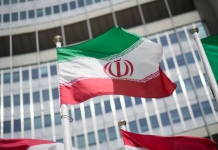NEW DELHI: India has issued a second formal notice to Pakistan, seeking a “review and modification” of the 64-year-old Indus Waters Treaty (IWT).
This follows the first notice sent in January 2023, indicating New Delhi’s intent to address what it views as fundamental changes in the geopolitical and environmental landscape since the treaty was signed in 1960, citing changes in population growth, agricultural needs, and the evolving water usage situation since the treaty’s inception in 1960.
The latest notice, sent under Article XII (3) of the treaty, underscores India’s push to renegotiate the water-sharing agreement, which governs the use of the Indus River and its tributaries between the two nations.
At the heart of the issue are two hydropower projects in Jammu & Kashmir—the Kishanganga and Rat-le hydel projects—both of which Pakistan has repeatedly claimed violate the terms of the IWT.
India’s push for treaty amendments is linked to its efforts to build new water reservoirs, and it claims that the current agreement no longer effectively facilitates these projects.
Indian officials argue that the country’s growing population and shifts in agricultural demands necessi-tate changes to the existing water-sharing terms.
In addition, India has controversially linked the water-sharing issues with concerns over terrorism and alleged infiltration, claiming these factors are hindering the full utilization of its water share under the treaty.
The Indus Waters Treaty, brokered in 1960, allocates water from six rivers between the two nations. Under the treaty India controls the water from the Beas, Ravi, and Sutlej (eastern rivers), while Paki-stan has rights over the Chenab, Indus, and Jhelum (western rivers).
Although the treaty allows India limited use of the western rivers for non-consumptive purposes, in-cluding power generation, the design and operation of these hydropower projects remain key sources of tension.
Pakistan has repeatedly raised concerns that these projects violate the treaty by affecting water flows, critical to its agricultural needs.
The Indus Waters Treaty, brokered by the World Bank, is widely considered one of the most successful water-sharing agreements in history, but the latest tensions suggest that both nations may need to reassess their commitments in light of new environmental and security concerns.
During the past few years, both the countries have been arguing over the hydroelectric projects on the shared Indus River and its tributaries for decades, with Pakistan complaining that India’s planned hydropower dams will cut flows on the river which feeds 80% of its irrigated agriculture.
The dispute pertains to concerns raised by Pakistan over India’s construction of the 330 megawatts Kishanganga project on the Jhelum River and plans to build 850MW Ratle Hydroelectric project on the Chenab River in Indian Illegally Occupied Jammu and Kashmir (IIOJK).
To resolve the dispute, Pakistan sought resolution through PCA arbitration proceedings in 2016, prompting India to request that the World Bank appoint a neutral expert under the terms of the Indus Waters Treaty (IWT) of 1961.
Islamabad had gone to the PCA after raising its concerns over the Kishanganga project in 2006 and over the Ratle project in 2012 at the Permanent Indus Water Commission to seek resolution of the disputes at the government-to-government level.
India boycotted The Hague court proceedings, questioning the competence of the court.
The Permanent Court of Arbitration (PCA) in The Hague in April 2023 rejected India’s objections to a Pakistan-initiated procedure over water use in the Indus River basin, reopening a procedure that had been blocked for many years.
The PCA declared Pakistan’s case – the international court has “competence to determine” the dis-pute over changes in the designs of the Kishanganga and the Ratle hydroelectric plants by India – ad-missible. –Agencies



